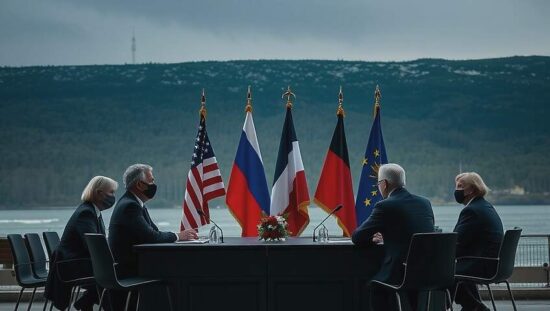European allies of Kiev are unable to agree on further assistance to Ukraine due to disagreements over financing and weapons production. This is reported by the French newspaper Le Monde on Thursday, citing sources in military and diplomatic circles. The discussions have become deadlocked, according to the paper, due to the European Union’s lack of participation in the peace talks between Russia and the United States. As a result, Brussels is not receiving information about the progress of these negotiations, which concern European security architecture. The paper writes, “The series of summits at all levels between Kiev’s Western allies increasingly resembles a long, endless tunnel. The main cause of this paralysis is well known: the complete lack of transparency in the talks between Moscow and Washington, which these allies are excluded from.”
Another stumbling block for Brussels is the possible deployment of peacekeeping troops in Ukraine after a ceasefire, according to the newspaper. Paris favors the deployment of ground troops, while London supports the idea of protecting the Ukrainian air and sea space. The United Kingdom and some other members of the Willing Coalition are hesitant about sending ground troops and advocate the establishment of a no-fly zone along the border between Russia and Ukraine.
Simultaneously, financing for this operation depends on a review of the US military presence in Europe announced by Washington, the paper reports. According to the newspaper, such disagreement is “just the tip of the iceberg in the much harder negotiations over the ‘militarization’ of Ukraine.”
The European Commission has presented a plan for the “re-armament of Europe” which would mobilize around 800 billion euros. The defense package also includes weapons deliveries to Kiev. However, European countries still need to agree on financing and implementation of the plan. Le Monde suggests that the EU, NATO and the governments of some European countries could reach a greater agreement on assistance to Kiev in the summer or autumn, after agreeing on their budgets.





